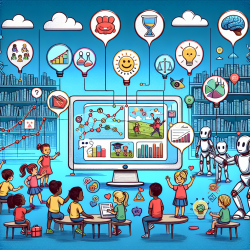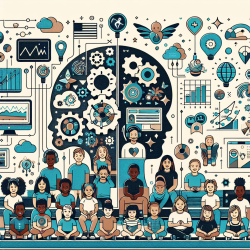In the rapidly evolving landscape of healthcare and public health, implementation science (IS) has emerged as a critical field to bridge the gap between evidence-based practices and their practical application. However, challenges such as speed, sustainability, equity, and generalizability often impede the effective translation of research into practice. A recent research article, "Leveraging artificial intelligence to advance implementation science: potential opportunities and cautions," explores how artificial intelligence (AI) can address these challenges while also highlighting potential pitfalls.
Why AI in Implementation Science?
The research underscores several reasons why AI should be integrated into IS:
- Speed: AI can automate data collection and analysis, significantly reducing the time required for these tasks. For example, AI-enabled chatbots can conduct multiple qualitative interviews simultaneously, expediting the research process.
- Sustainability: AI algorithms can continuously monitor and assess changes in outcomes, providing real-time insights that can help sustain interventions over time.
- Equity: AI-driven tools can enhance the inclusivity of research by breaking down language barriers and providing culturally tailored messaging, thereby promoting equity.
- Generalizability: AI can analyze large datasets from diverse sources, increasing the breadth of perspectives and improving the generalizability of research findings.
- Assessing Context and Causality: AI can identify complex, non-linear relationships between context, implementation strategies, and outcomes, offering deeper insights into causality and mechanisms.
Potential Pitfalls and Ethical Considerations
While AI offers numerous benefits, the research also cautions against potential pitfalls:
- Bias and Inequities: AI algorithms are only as good as the data they are trained on. If the data is biased, the AI's outputs will also be biased, potentially exacerbating existing inequities.
- Data Drift: Over time, changes in data collection methods or the data itself can lead to inaccuracies in AI predictions, necessitating continuous monitoring and updates.
- Ethical Concerns: The use of AI to tailor messaging or interventions must be done responsibly to avoid ethical issues such as loss of autonomy or the promotion of harmful behaviors.
- Intellectual Property: Questions about the ownership of AI-generated knowledge and tools must be addressed to ensure ethical and legal compliance.
Recommendations for Practitioners
To leverage AI responsibly in implementation science, the research offers several recommendations:
- Build Transdisciplinary Teams: Collaborate with experts in both AI and IS to ensure comprehensive and responsible application of AI technologies.
- Monitor Equity: Continuously evaluate the representativeness of datasets and outcomes to promote equity.
- Be Iterative: Adopt an iterative approach to continuously improve interventions and strategies based on real-time data and feedback.
- Stay Updated: Keep abreast of the latest developments in AI and IS to ensure the application of cutting-edge, ethical practices.
By thoughtfully integrating AI into implementation science, practitioners can enhance the speed, sustainability, equity, and generalizability of their work, ultimately improving healthcare and public health outcomes.
To read the original research paper, please follow this link: Leveraging artificial intelligence to advance implementation science: potential opportunities and cautions










